Ambassadors and Members of The Organizational Zoo Ambassadors Network (affectionately known as OZAN) used the Zoo Character Cards to explore the behavioural DNA of Leadership. That is, which metaphors best represents the complex behavioural capabilities required to inspire others to follow you when the situation is ideal and the organization is performing well. Clearly, a successful leader (consciously) adjusts their behavior when the context changes and this is the critical point of facilitating “Conversations That Matter” using the Zoo concepts.  The most valuable insights come from engaging perspectives and leveraging the diversity of views and experiences through the conversation. The creativity and humour embedded into the Zoo Character Cards stimulate conversation and highlight the range of views to generate learning. The final output of the activity is an artifact of that conversation and this in itself generates another conversation as participants can see the entire results of all conversations in the room and compare what their group agreed with others. These outputs can be compared with other results for the same topic or other topics such as the behavioural DNA of Creativity, Collaboration, Trust, Conflict and any context you choose to explore.
The most valuable insights come from engaging perspectives and leveraging the diversity of views and experiences through the conversation. The creativity and humour embedded into the Zoo Character Cards stimulate conversation and highlight the range of views to generate learning. The final output of the activity is an artifact of that conversation and this in itself generates another conversation as participants can see the entire results of all conversations in the room and compare what their group agreed with others. These outputs can be compared with other results for the same topic or other topics such as the behavioural DNA of Creativity, Collaboration, Trust, Conflict and any context you choose to explore.
OZAN members have collectively facilitated many such activities in workshops for many years and we are now gathering these up and presenting some in this rich format to share more widely. We are hopeful that this will stimulate more conversations about behavioural adaptability and how Zoo Metaphor can assist to generate safe, non-political conversations that are fun and engaging, whilst developing understanding relationships and trust. Workshops using the Zoo Metaphor cards have been highly successful with NASA, Cirque du Soleil, World Bank, Yammer, a wide range of commercial organisations and government departments in Australia and internationally. As we write up these activities, we hope you engage with the conversations and are able to use some of the outputs to stimulate engaging interactions of your own.
Remember, it is not the output itself that is most important.
It is outcomes you achieve together through the sharing of ideas and developing your own awareness of emotional intelligence, reflective practice and the impacts of behavior on everything we do. Most people are impacted by the behavioural environment around them by responding to it. Great leadership involves consciously behaving in a way that CREATES the desired behavioural environment and then adapting this as the context changes.
This particular game was facilitated in the same way as the activity to explore the Behavioural DNA of Creativity. Participants divided into small groups and collaborated to put 5 characters into each of four rows (in this case for leadership in “good times”):

Expected = those essential for optimal performance in the context
Desired = those that are also beneficial (but not as required as the Expected behaviours)
Tolerated = those that are not appreciated, but not bad enough to cause conflict
Rejected (Not tolerated) = Those that will be totally disruptive to the desired outcomes and likely to generate conflict
You can make up your own mine about what you agree with and disagree with as we are not suggesting there is A RIGHT answer.
The key point to reflect on is, we WILL disagree depending on our culture, personal experiences and preferred styles.
Optimal outcomes are achieved when we constructively engage to find similarities to build trust and constructively explore differences to understand each other better and avoid conflict.



 Creative Commons License
© Arthur Shelley 2013 - 2024
Creative Commons License
© Arthur Shelley 2013 - 2024
There are certain behaviours that people would do well to have in their repertoire, but which most people lack to some degree. For example, the capacity to receive criticism//feedback without reacting defensively, but simply considering what merit there might be, if any, in what is being presented.
In this context, I see Conversations That Matter as filling an important gap. People love to talk… people love to ‘talk about’ things to no purpose (our education systems typically condition people to this, so it is not surprising that this is what people expect in conversations). Conversations That Matter show a way to have constructive conversations. Brilliant!
Thanks for your feedback Andrew. Yes conversations are a great way to socilaise a diversity of perspectives.